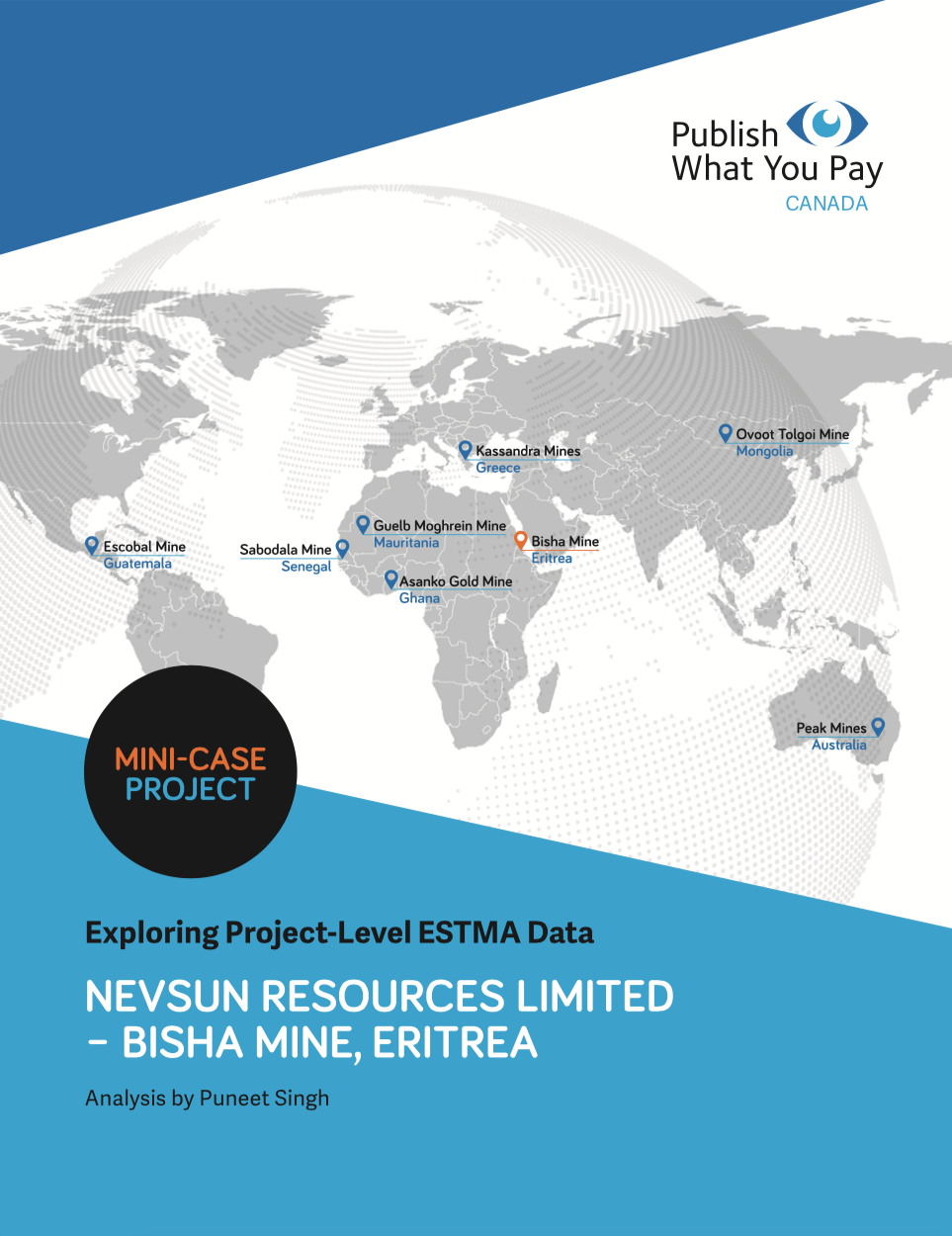This case study explores project-level information disclosed by extractive companies. It seeks to contextualize and further explain the company and the payments made in relation to one mine. It is a tool to promote and encourage the use of ESTMA data by journalists and civil society advocates.
Read MoreThis case study explores project-level information disclosed by extractive companies. It seeks to contextualize and further explain the company and the payments made in relation to one mine. It is a tool to promote and encourage the use of ESTMA data by journalists and civil society advocates.
Read MoreThis case study explores project-level information disclosed by extractive companies. It seeks to contextualize and further explain the company and the payments made in relation to one mine. It is a tool to promote and encourage the use of ESTMA data by journalists and civil society advocates.
Read MoreThis case study explores project-level information disclosed by extractive companies. It seeks to contextualize and further explain the company and the payments made in relation to one mine. It is a tool to promote and encourage the use of ESTMA data by journalists and civil society advocates.
Read MoreThis case study explores project-level information disclosed by extractive companies. It seeks to contextualize and further explain the company and the payments made in relation to one mine. It is a tool to promote and encourage the use of ESTMA data by journalists and civil society advocates.
Read MoreIn partnership with the Mining Association of Canada, the Prospectors and Developers Association of Canada, and the Revenue Watch Institute, PWYP - Canada has produced a draft framework for the disclosure of payments to governments for Canadian oil and mining companies operating domestically and internationally.
Read MoreThis paper features a comparison of the disclosure requirements in Canada and the US, following the US adoption of the Dodd-Frank Act. The paper focuses on two specific requirements set out in the new law, including disclosure of payments to host governments and reporting on measures taken to assure conflict minerals do not enter a company's supply chain. It concludes that harmonizing Canadian disclosure requirements with those set out in the Dodd-Frank Act is necessary in order to ensure investor protection for companies operating on both sides of the border, as well as for Canada to live up to its commitment to transparency and corporate accountability.
Read MoreThis position paper discusses Canada's recent involvement in the EITI as a supporting country, and demonstrates why full implementation of the EITI is necessary to ensure greater transparency in the extractive sector, both nationally and internationally.
Read More






